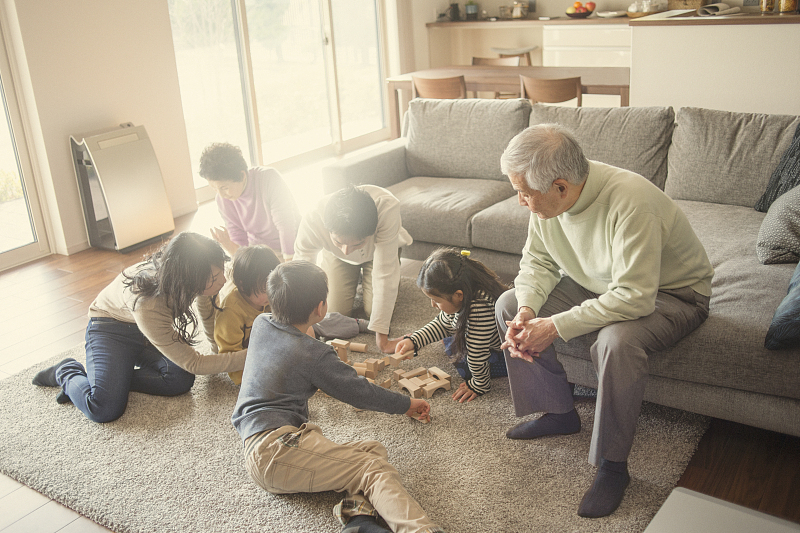
Among 2,532 respondents, only 69 believe they don't have any problem involving in real world people-to-people interactions. 97% of the respondents said they once tried to avoid social activities, partly because of fear, anxiety or simply boredom. /VCG
Among 2,532 respondents, only 69 believe they don't have any problem involving in real world people-to-people interactions. 97% of the respondents said they once tried to avoid social activities, partly because of fear, anxiety or simply boredom. /VCG
For many young people in China, human interaction is not on their list of daily activities.
While this generation may not be comfortable engaging in real life social activities, not all of them are necessarily lonely, according to a recent survey by Chinese state media.
Most millennials and Gen-Z recognized they have more or less social phobia symptoms, according to the survey. Among 2,532 respondents, only 69 believed they had no problems interacting with people in the real world. Ninety-seven percent of respondents reported avoiding social activities at least once, due to either fear, anxiety or boredom. However, the other side of this number, is that many of them reported enjoying being alone – they live alone, build social networks online and said they get joy from the virtual world.

A survey shows many young Chinese enjoy being alone – they live alone, build social networks online, and extract joy of life from the virtual world. /VCG
A survey shows many young Chinese enjoy being alone – they live alone, build social networks online, and extract joy of life from the virtual world. /VCG
Going all virtual
Millennials (defined as between the ages of 24-39) and Gen-Z (18-23) in China have witnessed great changes in the country. They are different from their parents in terms of social behaviors and values. Most of them grew up in the 1990s, under the one-child policy, while their parents were busy participating in the urbanization and economic taking-off of China. Cities have also transformed traditional Chinese big families to smaller units made up of dad, mom and one child. It's been argued that this generation therefore can feel less personally connected to relatives, friends and neighbors.
On the other side, the generation is definitely internet savvy as they started to use cell phones, messaging tools, and search engines at a very young age. Compared with meeting up friends in a physical place, they prefer to reach out to people virtually and get things done. The all-scenario social apps penetrate every corner of their life, 24/7 social platforms cover their daily life – from making friends, learning to work and shopping.
It's a complicated truth. They appreciate the convenience brought by technologies but lose the chance to understand the charm of human interactions at the same time.
"It is kind of a social etiquette for us to not bother," said Jing Tian, a senior at Peking University. "I would't say we fear social life – when everything can be done online via WeChat or emails, we just don't call or meet people. The key is to keep proper social distance, and leave some space and liberty for each other. "
It's a choice
From tools such as QQ, WeChat, and Bilibili, social media tools have shaped how the younger generation in China connect with the world.
Let's imagine if you need to spend three hours on the road to meet a friend after being overworked the whole week, will you choose to rest at home talking to them via messaging tools? Given what it costs to social in real life, young Chinese would rather enjoy the hustle and bustle online.
However, there are some disadvantages to this type of interaction.

Most Chinese people would not sacrifice quality time with family. /VCG
Most Chinese people would not sacrifice quality time with family. /VCG
We all want to save time and trouble. But "when families get together without heart-to-heart communications, students keep online chatting in classes, and lovers are afraid of saying 'I love you' unless on social media, we call it 'alone together'," as per sociology and personality psychologist Sherry Turkle.
This indicates people are very possibly living in their own bubbles, using social media to keep the unceasing connection with the real-world though they feel deeper aloofness. Some Chinese young people use the connection to cure themselves as physical social life sometimes can't lead to open conversation and quality communications. But some are just enhancing social media use out of the desire to stay continually connected with what others are doing and the concern that others are having a "good time" without them.
"I am not addicted to chatting with people or sharing my moments online, I just like highly effective talks with right people," said Ryan Dong, who is a Gen-Z working in the finance industry. "Due to the workload, we don't have time lingering around in social events. But I won't sacrifice any offline chances to accompany parents, have fun with friends or join professional events."
Keep it real
"In the past two years, I refused to make any friends in the real world. I lived a life with my real self, but lost myself at the same time," said a Gen-Z netizen named Yitian.
While social media may help people avoid pressure and awkwardness in real life, this online interactions may be too easy for the digitally savvy.
Livestreams and chat rooms make it easy to make it seem like there's social interactions going on, but it could also be unconsciously locking a lot of young people into a circle of narrowness, extremity and isolation. Online or offline, it is definitely not a good sign in terms of having a mature social life.

Demand for solo business appears to be growing rapidly in China. /VCG
Demand for solo business appears to be growing rapidly in China. /VCG
Walking out of a comfort zone to welcome real connection with human beings is the key to settling social phobias. Given what we can't change, we might instead change how we think about the situation. Coming to the real-life social environment is an inevitable step for learning how to deal with stress, which is a skill that can be improved and developed over the course of a lifetime.
"Go to taste the bitterness and love from this world of human affairs. You may experience stress, sorrow and complication, but they altogether form a real world. You'll get a safety net once acquire abilities to deal with those emotions, pure comfort cannot help you get to there," said Yitian.